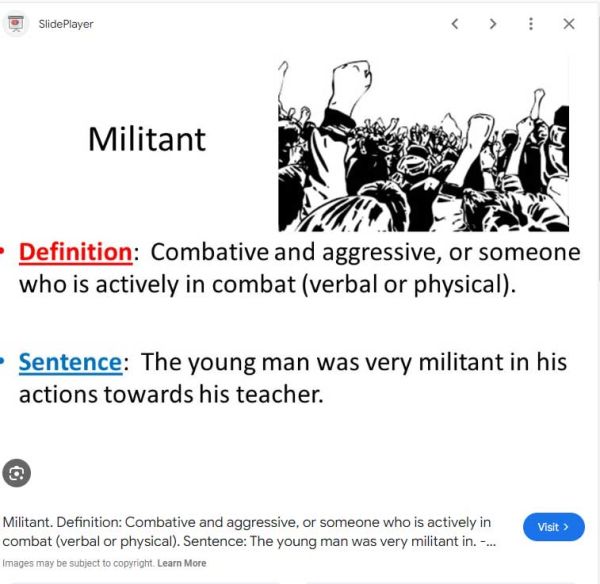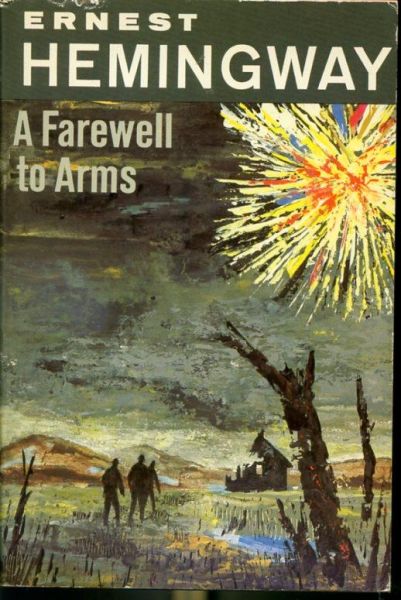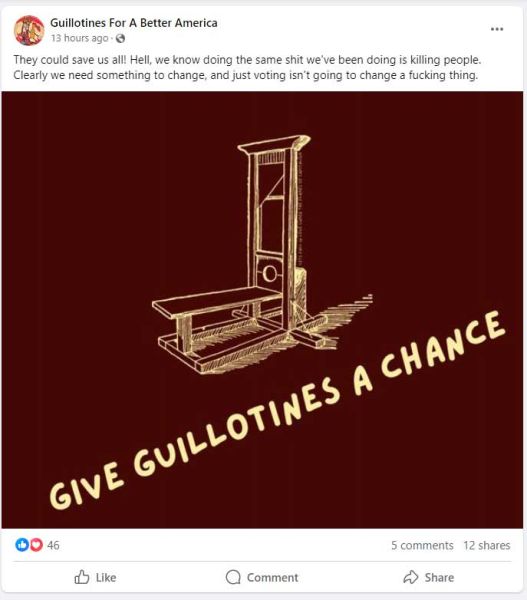If my reader spends any time at all on Facebook, he can't miss the posts from left-wing bloggers who want to "eradicate" whole classes of people. They make a lot of jokes about chopping off their heads, feeding them to killer whales, or sending them down inside leaky submarines. The level of violence surprised me, like extortionists fronting a protection-racket.

In order to finish this post, I needed a "key" word that would define the posture of the FB bloggers. I decided on "militant". The Wikipedia article on militant says it comes from the Medieval Latin word "Militare", which means "to serve as a soldier". From there, my mind turned to Hemingway's novel A Farewell to Arms, which takes place in the First World War.

In the novel, an American Fred Henry has signed up with the Italian Army to drive an ambulance. He experiences first-hand the defeat of the Italian Army during the Battle of Caporetto. The Army starts to retreat. Artillery fire from the invading Austro-Hungarian forces make the retreat chaotic.
The General Staff of the Italian Army decides to threaten execution to officers who allow their men to retreat. It does so in the most inhumane manner possible. It sends in units of the "Battle Police", the Polizia di Battaglia, who simply execute all of the commanding officers—thousands of them! Without Hemingway's novel, no one would ever have known.
Hemingway wanted to use profanity to express his outrage, but his publisher left the spaces for the profanity blank. Just the suggestion of profanity angered many readers nevertheless. Hemingway even wrote in the profanities by hand in some first-edition copies. Those copies fetch thousands of dollars in the antique-book market—touched personally in the master's hand!
What a strange situation. Fred Henry and thousands of other soldiers fled the Caporetto battlefield in disorder. The Battle-Police stepped in to question all the commanding officers and, after a short interview, shot them. Fred Henry has to stand in line while the Police interrogate the men ahead of him:
We stood in the rain and were taken out one at a time to be questioned and shot. So far,
they had shot every one they had questioned. The questioners had a beautiful detachment
and devotion to stern justice, of men dealing in death without being in any danger of it.
Next, the Battle Police came for Fred Henry, a lieutenant, and grabbed him. Henry resisted:
"Take him back there with the others," the first officer said. "You see. He speaks Italian
with an accent."
"So do you, you ——," I said.
The Fascist nations hated Hemingway's book. Certainly they hated the idea of a military that eats its young. The book's bitter satire about impersonal death from unseen hands miles away turns readers against war, as a solution to problems. For me, the book also tears down the notion of people using a moral justification to carry out mass executions—indifferently murdering the unguilty along with the guilty—whether delinquent soldiers or wealthy Americans. The lack of differentiation doesn't bother the murderers in the least.





